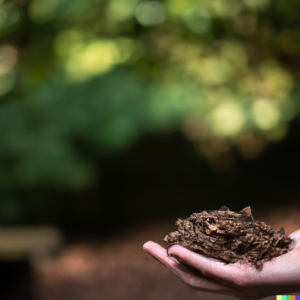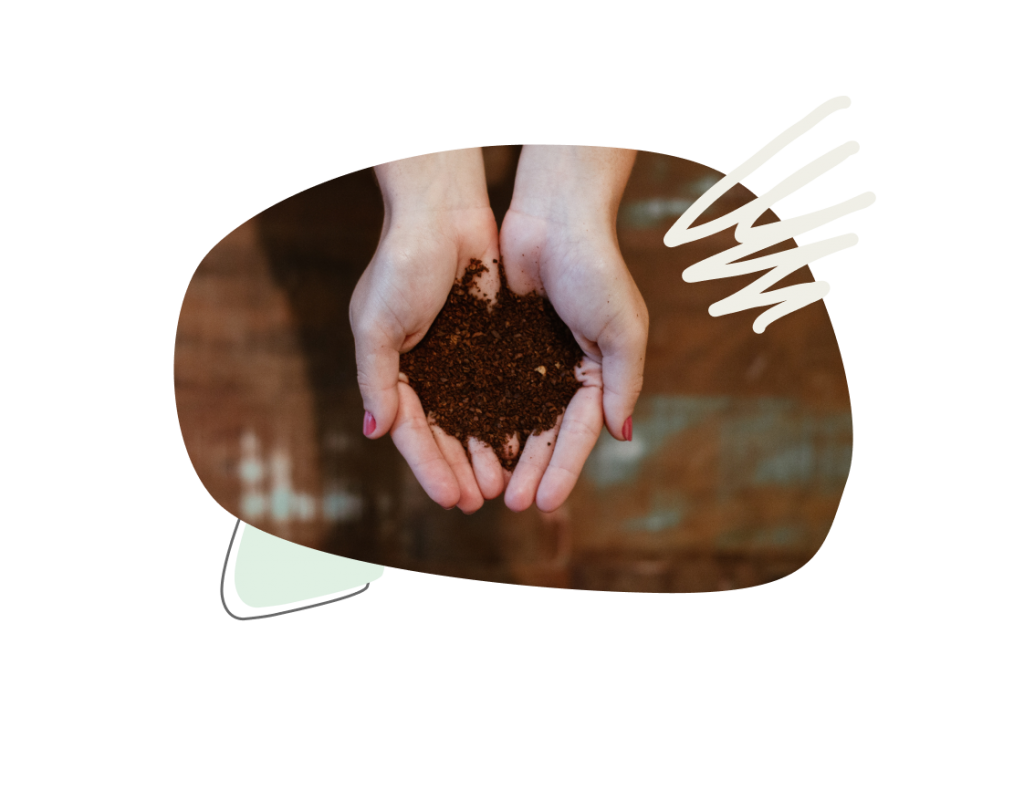The Circular Economy of Death: Embracing Sustainability from Cradle to Grave
The funeral industry is slowly waking up to the need for more eco-friendly practices. With over 600,000 deaths per year in the UK, traditional burials and cremations have a massive carbon footprint. Embalming fluids leach into the soil, coffins use timber and metal resources, and cremations require huge amounts of fossil fuel. However, there is a better way – human composting.
What is Human Composting?

Human composting, also known as natural organic reduction or terrestrial composting, is an eco-friendly ‘green’ burial alternative that is gaining popularity. The process converts human remains into soil, allowing us to go from cradle to grave in a sustainable circular system.
The body is placed in a reusable vessel along with plant material such as woodchips, alfalfa and straw. Over 30-45 days, naturally occurring microbes break the body down through the process of recomposition. This results in about 1 cubic yard of nutrient-rich soil amendment.
The soil can then be returned to the deceased’s family to use as they wish, such as in a memorial garden, or donated to conservation projects to nourish new life through planting trees.
Why Choose Human Composting?
Human composting offers a more ethical and environmentally friendly choice than traditional burials or cremations. Here are some of the key benefits:
- Low carbon footprint – no fossil fuels required and remains absorb carbon as they break down into useful soil.
- Conserves land – a typical 10 acre cemetery can accommodate 1000+ recomposed bodies compared to just 1000 traditional burials.
- Prevents pollution – no embalming fluids or coffin varnishes contaminating groundwater.
- Saves resources – no wood or metal for caskets required.
- Nutrient recycling – remains help nurture new life and growth.
- Cost effective – prices are comparable or cheaper than basic cremations.
The Emerging UK Market
While human composting is now legal in some US States, UK regulation currently prohibits it. However, public interest is growing and several eco-conscious startups are pioneering natural organic reduction techniques ready for future law changes.
Some key players in the emerging UK human compost space include:
- Earth Funerals – Offering rewilding services to turn ashes into new woodlands.
- Resomation – Using water instead of fire to break down remains through alkaline hydrolysis.
- Green Funeral Company – Providing eco-coffins and support for woodland/conservation burials.
- Stone Pine – Crafting cylinders that families can use to compost remains at home.
As climate consciousness spreads, many UK consumers want more ethical end-of-life options with lower environmental impacts. Human composting offers a promising sustainable solution that could be an essential part of our circular economy future.
Towards Eco-Friendly Death Care
Death is an inevitable part of life. But how we care for our dead doesn’t have to be so harmful to the planet. With growing interest from the public and policymakers, human composting legislation is likely to follow other countries.
By embracing natural organic reduction, we can enrich the earth for future generations even after we’ve left it. Sustainability matters at every stage of our lives – from cradle to grave. The circular economy of death is an idea whose time has come.
Are you interested in a natural, more sustainable funeral?
Right now, human composting and terramation are not legal in the UK. But we want to change that. Add your voice to our Close the Circle campaign and help more people give back to the Earth at the end of life.

